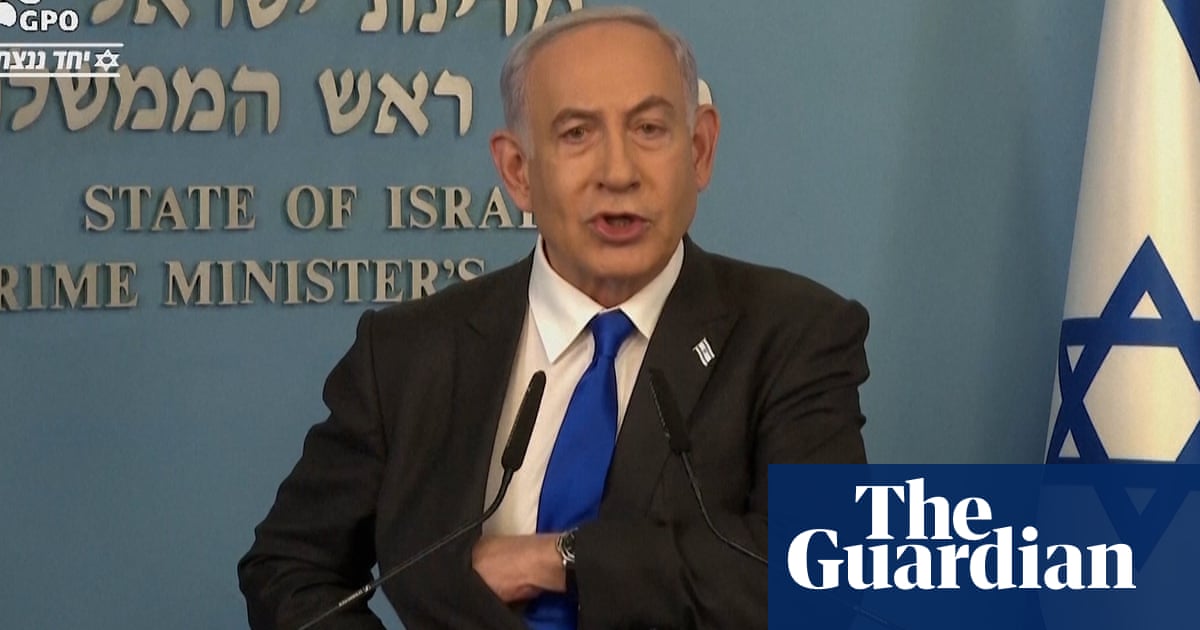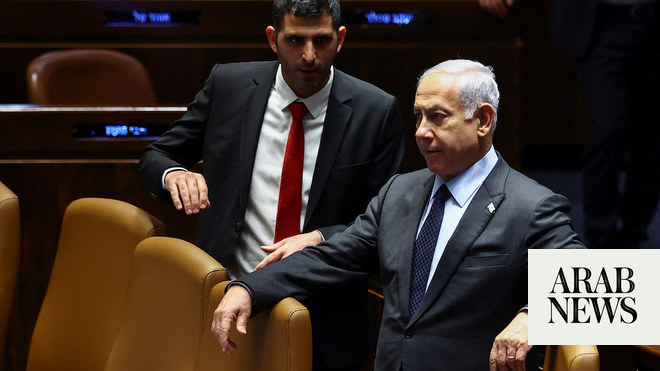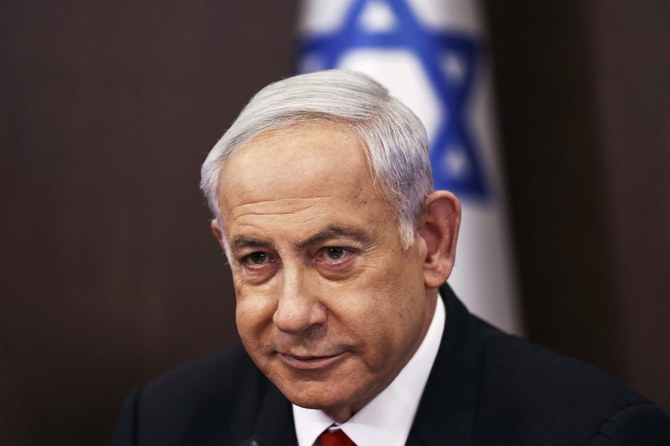
2-state solution is still possible but if conflict with Palestinians is to end, there must be change of leadership in Israel, Yossi Mekelberg tells ‘Ray Hanania Radio Show’
He says a 2-state solution remains the best option for peace but other scenarios that fully recognize the rights of both peoples should also be considered
CHICAGO: Israeli Prime Minister Benjamin Netaynahu is “not a friend of peace” and is using his right-wing government coalition and the conflict with the Palestinians to further delay his own corruption trial and avoid justice, a leading Israeli analyst said this week.
Yossi Mekelberg, an associate fellow with the Middle East and North Africa Program at Chatham House in London, told the “Ray Hanania Radio Show” that Netanyahu has been deliberately prolonging the war in Gaza to serve his own interests, rather than the interests of the people on both sides.
An important change that is required from the international community if hopes for a two-state solution are to be salvaged is an expansion of the peace process to increase the role of other nations besides the US and help change the discourse surrounding the conflict, he said, while Washington must consider what is the best path forward for achieving its own goals.
“What about the American interest; where does the American interest lie?” asked Mekelberg, who is also a columnist for Arab News. “(US Secretary of State Antony) Blinken, now on his ninth visit to the region, is almost begging for a ceasefire.
“It’s (bad) enough that Netanyahu is delaying and delaying and adding new conditions (to the peace negotiations), while (the conflict) is linked also to the possibility or the threat and the danger of a regional war. This is where it intersects with the American interest: the implications of a regional war for American interests. So the discussion should also be what is good for America.
“I think the United States is crucial (to the process). What I don’t like, sometimes, when it comes to this discussion with Europeans, whenever I have a discussion (about the conflict) with officials from the European Union they say it’s only the Americans (who have the power to end the conflict). I think the EU can play a part. I think the (Arab) region can play a very important part.
“So just to look and say there is only one peace broker … that’s not right. Especially when one side doesn’t really trust this peace broker. So, I think we need a coalition of peace brokers.”
Mekelberg said a key factor that continues to fuel the conflict is Netanyahu’s partnership with far-right parties within his coalition government.
Netanyahu was indicted on Nov. 21, 2019, on charges of breach of trust, accepting bribes and fraud. A trial began in Israel on May 24, 2020, but has yet to conclude, Mekelberg said, because of the efforts by Netanyahu’s right-wing government to undermine judicial and legal processes in Israel.
“They say that every country gets the leader it deserves; I think in the case of the Israeli government, the punishment is way bigger than the sin,” he added.
“So I think Israel deserves better leadership. You know, the only conclusion I can reach is that Netanyahu is not interested in a peace-based, two-state solution — which for all the faults and all the misgivings that one might have about a two-state solution, it’s still the best alternative, the best option.”
Mekelberg believes part of Netanyahu’s approach to Hamas prior to the Oct. 7 attacks by Hamas on Israel last year, including the funneling of funding to the group, was to maintain “the divisions among Palestinians, between Fatah and Hamas, the West Bank and Gaza” with the aim of “derailing any hope of a two-state solution.” He added: “So if this is the solution that can bring peace, I don’t think Netanyahu is in any shape or form a supporter of it.
“At the end of the day, neither this government nor Netanyahu are friends of peace … it’s more a government that (seeks) the annexation of the West Bank, and some even talk about the occupation or reoccupation of Gaza and building settlements there.” Mekelberg said the opposition from Netanyahu and his government to a two-state solution plays into their own political interests, is fueling the conflict between Israel and the Palestinians and preventing peace.
He repeated that a two-state solution remains the best option but other scenarios for peace that recognize the rights of both peoples should also be considered, including a confederation of some form.
“I think (we have seen) so many final nails in the coffin of the two-state solution … it’s full of final nails,” he said.
“Now, the facts on the ground — (including) the expansion of settlements, the settler population (of) more than 700,000 and the encircling of Jerusalem with settlements — have made (peace) more difficult.”
However, Mekelberg added, peace can come in many forms.
“One of the options is to look into confederation,” he added. “You have two states but because of the size of the territory, it doesn’t need hard borders; you need to think of an almost EU-style (model) where people can move from one side to the other freely. Look at Jerusalem as the capital of both but with no need for more walls. Actually, walls should come down.”
You can hear the full interview with Yossi Mekelberg on Thursday, Aug. 29 at 5 p.m Eastern Standard Time and on Monday, Sept. 2 on WNZK 690 AM radio in Michigan, or at ArabNews.com/RayRadioShow.











